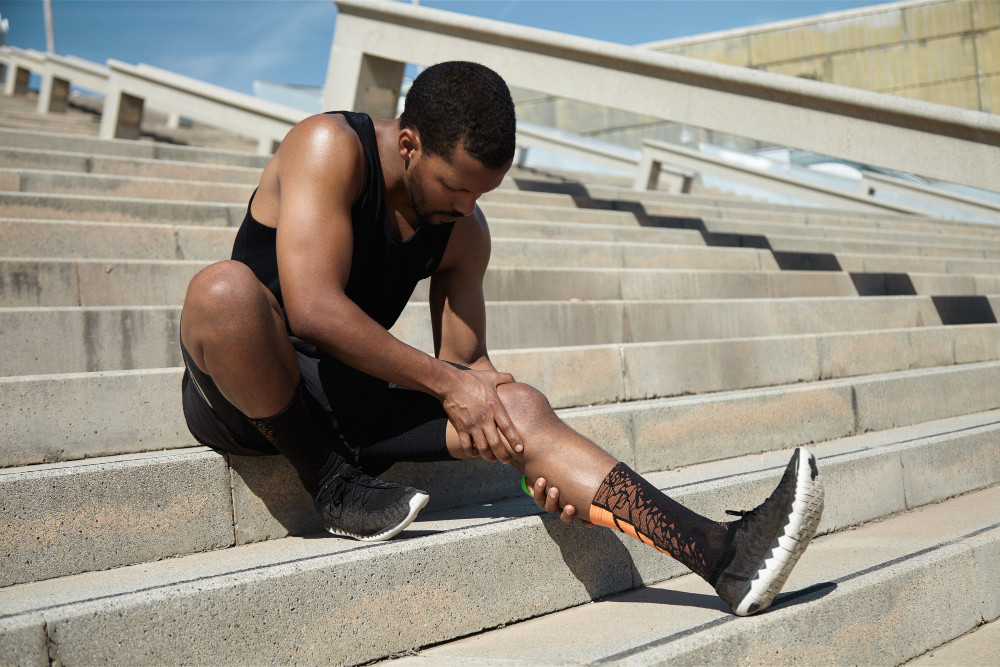Muscle cramps are caused by involuntarily stiff or contracted muscles. This disorder hurts and lasts many seconds to several minutes. Though they may impact any part of the body, usually cramps affect the thighs and calves.
Lack of some minerals and nutrients is one of the several factors causing muscle cramps. Foods high in particular nutrients may help overcome and avoid muscular cramps.
Top 8 foods to relieve muscle cramps
The onset of abrupt, severe muscle cramps is unpredictable. Muscle strain, heavy exercise, pregnancy, menstruation, a lack of water, alcohol, and drugs are some of the things that might cause cramps in the muscles. A lack of minerals or an imbalance of electrolytes can also lead to muscle cramps.
Stretching, massaging the muscles, and consuming essential electrolytes, including potassium, sodium, calcium, and magnesium, are effective methods for relieving cramping. Consuming foods that are rich in electrolytes also can relieve muscle cramping.
A few examples of meals that can help reduce muscle cramps are as follows:
Avocado
Avocado is a fruit high in nutrients, including potassium and magnesium, which serve as electrolytes. Electrolytes are electrically charged compounds that the body needs to perform many tasks, including muscular contraction. Muscle cramps may occur as a result of an electrolyte imbalance during active exertion. Avocados can help relieve muscle cramps.
Watermelon
Muscle cramps can result from dehydration. Watermelon is a fruit with a high liquid content (up to 92%). Watermelon also contains magnesium and potassium, two vital elements that help to maintain overall muscular function.
Papaya
Rich in potassium and magnesium, papaya is another fruit besides watermelon and avocado. One 11-ounce papaya has about 15% and 19% of the recommended intake of magnesium and potassium. When compared to people who do not eat papaya, eating this fruit may help relieve muscular cramps.
Coconut Water
Calcium, potassium, sodium, magnesium, and phosphorus are all present in coconut water, which is a beneficial source of electrolytes that may relieve muscle cramping. According to research, drinking coconut water rather than plain water to rehydrate after an intense workout reduces the risk of muscle cramps.
Milk
Milk is a drink that has a high amount of calcium. Calcium is essential for the regulation of muscular contraction and relaxation in the body. A person with a calcium deficiency will have a higher risk of experiencing muscle cramps. In addition, milk is also rich in vitamin D, which enhances the absorption of calcium.
Green vegetables
Vegetables with dark green leaves are considered to provide a high concentration of nutrients. Muscle cramps can be treated and prevented by consuming this type of vegetable, which possesses a high potassium content. Green veggies such as spinach, kale, and mustard greens are examples of the kinds of green vegetables that you can eat.
Bone broth
Bone broth is prepared by boiling bones for an extended period of time to produce a concentrated broth. To enhance the nutritional value and flavor of stock, it is possible to mix in ingredients such as apple cider vinegar or seasonings.
Bone broth has a delicious flavor and is full of electrolyte minerals that help with nerve impulses and muscular activity. If you're pregnant or have recently exercised heavily, drinking bone broth can help relieve muscle cramps.
Fermented foods
You may relieve muscle cramps with fermented foods as well. When compared to water alone, fermented foods like kimchi and pickles can shorten the length of muscle cramps by interfering with nerve signals in the muscles. The efficacy of fermented foods in alleviating muscular cramps requires additional research.
You may relieve or avoid muscle cramps by eating specific foods. Preventing muscular cramps also involves making sure you get enough electrolytes and stretching before you do anything difficult. If you are experiencing muscle discomfort, you can either visit a doctor or make use of the consultation features that are available in the Ai Care application by downloading the Ai Care application from the App Store or Play Store
Looking for more information about nutrition, food, and other diet tips? Click here!
- dr Nadia Opmalina
Nelson, A. (2024). Foods That May Help With Muscle Cramps. Available from: https://www.webmd.com/pain-management/ss/slideshow-muscle-cramps-foods
Southwick, C. (2023). Eating These Foods Can Help Prevent Muscle Cramps. Available from: https://www.health.com/foods-that-prevent-muscle-cramps-7973949
Toshi, N. (2024). Top 7 Foods That Help With Muscle Cramps. Available from: https://pharmeasy.in/blog/top-7-foods-for-muscle-cramps/
Ball, J. (2019). Best Foods for Muscle Cramps. Available from: https://www.eatingwell.com/article/2060621/best-foods-for-muscle-cramps/
Kubala, J. (2023). 12 Foods That May Help with Muscle Cramps. Available from: https://www.healthline.com/nutrition/foods-that-help-with-muscle-cramps












